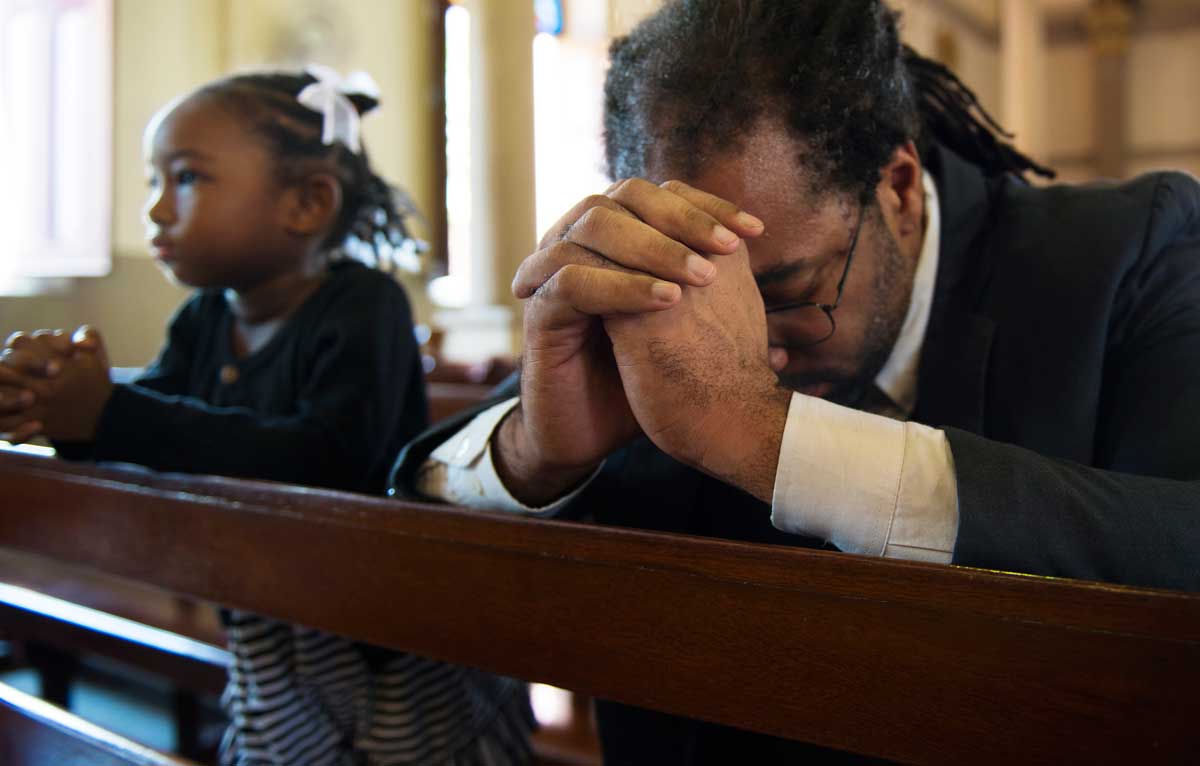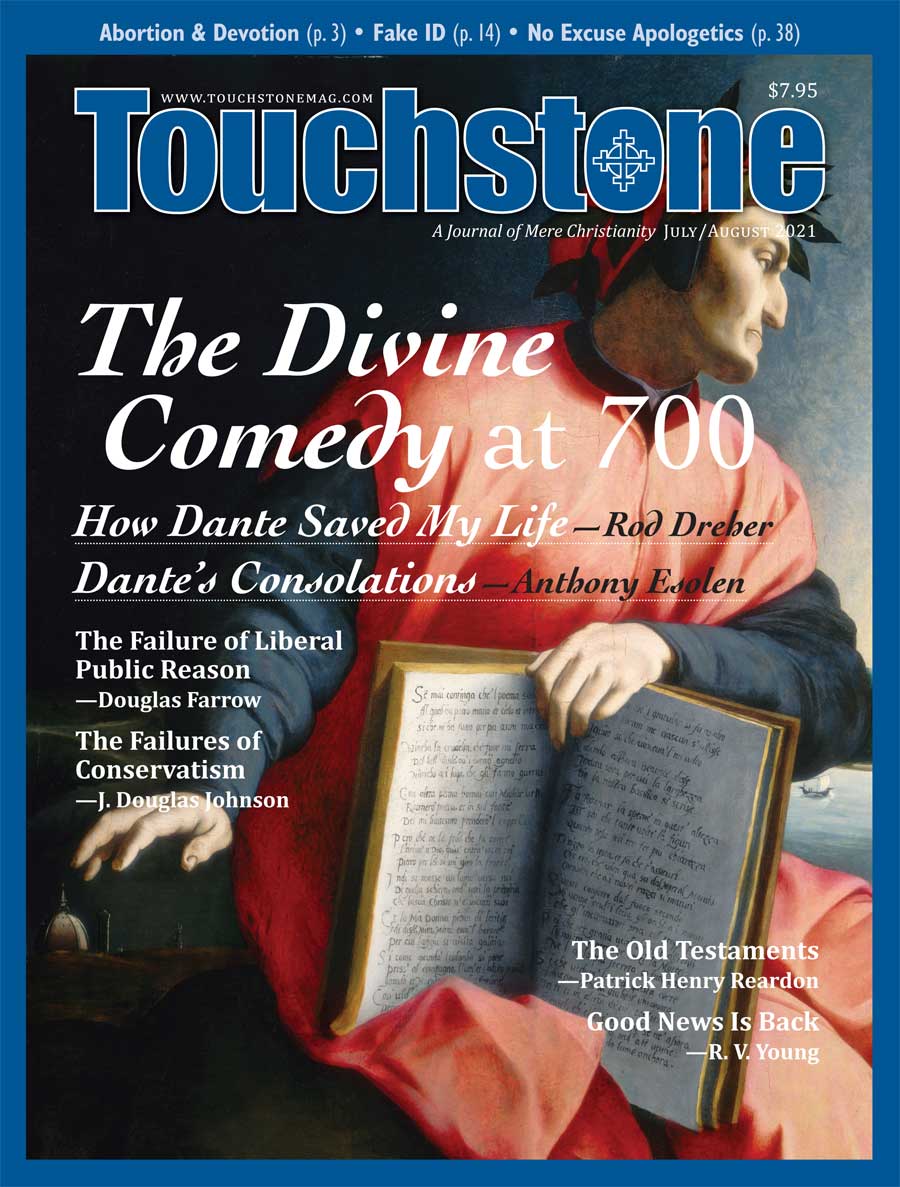The Complete Apologist
Four Essentials Every Christian Is Called to Embrace
by Donald T. Williams
American conservative Christians are not as biblical as we think we are. While we are clearly commanded always to be ready to make a defense to anyone who asks a reason for the hope that is within us (1 Pet. 3:15), vast swaths of us think it is somehow unspiritual to obey this biblical commandment. While we now have an Apologetics Industrial Complex with enough interested consumers to keep it in business, it has virtually no influence on the rank and file in the pews, the conduct of life in the church, or the practice of evangelism outside the closed circle of apologetics nerds. Therefore, we need some theses on this critical and essential but much misunderstood branch of Christian theology and ministry.
I. Full Readiness
First Peter 3:15 is frequently cited as a prooftext for apologetics—rightly so. Often the context is not noted, but it adds a crucial level of understanding to what is being asked of us. The commandment is part of an ongoing discussion of persecution from chapter 2 that resumes in 3:8. In such times, Christians are to return good for evil and blessing for curses (3:9). They are to be zealous for good, make sure that if they suffer it is for righteousness, and not be intimidated or troubled (3:13–14). Instead, they are to "sanctify Christ as Lord in your hearts, always being ready to make a defense to anyone who asks you to give an account for the hope that is in you, yet with gentleness and reverence" (3:15). Then the discussion continues, circling back to the topic of persecution. The result of this defense is that those who slander Christians will be put to shame by the Christians' good behavior (3:16).
The context does not lessen the emphasis on rational apologetics but roots it in the realities of life. That is why the actual imperative verb, the command, is to "sanctify Christ as Lord in your hearts." We are to set Christ apart as absolute monarch of our central, inner personality. He is to be Lord of that central core, the unity from which flow the distinct faculties of intellect, will, and emotion. (In biblical usage, the heart is not a symbol for the feelings, as in modern English, but rather for that central core of the whole personality.) Then, when people see how we respond to persecution, returning blessing for curses, they will be astonished and want to know why we do such a thing. When they do, we must be prepared with a reasoned response, a defense delivered not as a counterattack but rather "with gentleness and reverence." That's what apologetics is supposed to look like.
This "account" (NASB), or in some translations "defense," is the Greek word apologia, source of the English apologetics. It was a legal term for the final summation a lawyer would make in defending his client to a jury. He would present the evidence for his client's innocence, with sound reasoning about that evidence, to lead the jury to the correct verdict: acquittal. There is, then, evidence that our hope is not misplaced, and there are rational reasons why Christians hold to it that we need to know and be prepared to present. This readiness is commanded. It is an integral part of making Christ Lord of our hearts. It is therefore for every believer, not just for nerds and
intellectuals.
No dichotomy is permitted. The commandment includes both message and manner, substance and style. It is a rational defense requiring preparation (message, substance), and it is to be delivered with gentleness and reverence (manner, style). We are not obeying if we have mastered every argument only to run through poseurs on skeptical websites with our intellectual rapiers. Nor are we obedient if our courage and hope in the face of suffering or even persecution make our neighbors scratch their heads, but then we have nothing to tell them but "just believe." Demanded is the same kind of wholeness that Paul called "speaking the truth in love" (Eph. 4:15): not either/or, but both/and. Many of us who think we are practicing apologetics are simply in disobedience
here.
II. Essential to Discipleship
If a disciple is a baptized person learning to obey all of Jesus' commands (Matt. 28:19), and if Jesus gave us this one through his Apostle, then a disciple must be a person who aspires to be always ready to make a defense, and the kind of person whose response to suffering and persecution invites the questions it is designed to answer. Apologetics is therefore an essential part of Christian discipleship. The existence of the commandment is sufficient to make this point, but there is more to be said about why it is important. Christian apologetics is based on a biblical precept, a biblical precedent, and a biblical principle.
The biblical precept is the command of 1 Peter 3:15. It is not an isolated injunction but a special application of the Great Commission (Matt. 28:18–20). It is also an application of the mandated teaching ministry of the Church, which has the goal of "equipping the saints for the work of service" (Eph. 4:12) by grounding them in the Word that is profitable for teaching "so that the man of God may be adequate, equipped for every good work" (2 Tim. 3:17). In that teaching, "We proclaim him, admonishing and teaching every man with all wisdom so that we may present every man complete in Christ" (Col. 1:28). This surely includes the preparation called for by Peter's command. Apologetics is then relevant not only to evangelistic preaching but also to the proclamation that edifies and equips the saints for ministry, including evangelism. Thus we respond also to Jude's appeal that we "contend earnestly for the faith once delivered to the saints"
(Jude 1:3).
The biblical precedent is the example set by the Apostles of integrating apologetics seamlessly into their proclamation. Luke sets the stage by noting that Jesus had presented himself to the disciples by "many convincing proofs" (Acts 1:3). Then the early Christians preached as if they had that kind of foundation. Verbs like "reasoned," "argued," and "persuaded" or conjunctive adjectives like "therefore" appear frequently in the narrative of Acts. Peter's Pentecost sermon sets the precedent: it appeals to the disciples' experience and to the Old Testament, concluding with a rousing "Therefore let all the house of Israel know for certain that God has made him both Lord and Christ—this Jesus whom you crucified" (Acts 2:36, emphasis added). They could accept Jesus' Messiahship with confidence because of the logical connections of the conclusion to the evidence that had been so clearly and powerfully presented.
Donald T. Williams is Professor Emeritus of Toccoa Falls College. He stays permanently camped out on the borders between serious scholarship and pastoral ministry, between theology and literature, and between Narnia and Middle-Earth. He is the author of fourteen books, including Answers from Aslan: The Enduring Apologetics of C. S. Lewis (DeWard, 2023). He is a contributing editor of Touchstone.
Share this article with non-subscribers:
https://www.touchstonemag.com/archives/article.php?id=34-04-038-f&readcode=10574
subscription options
Order
Print/Online Subscription

Get six issues (one year) of Touchstone PLUS full online access including pdf downloads for only $39.95. That's only $3.34 per month!
Order
Online Only
Subscription

Get a one-year full-access subscription to the Touchstone online archives for only $19.95. That's only $1.66 per month!
bulk subscriptions
Order Touchstone subscriptions in bulk and save $10 per sub! Each subscription includes 6 issues of Touchstone plus full online access to touchstonemag.com—including archives, videos, and pdf downloads of recent issues for only $29.95 each! Great for churches or study groups.
Transactions will be processed on a secure server.
more on apologetics from the online archives
more from the online archives

14.1—January/February 2001
The Christian Heart of Fatherhood
The Place of Marriage, Authority & Service in the Recovery of Fatherhood by John M. Haas
calling all readers
Please Donate
"There are magazines worth reading but few worth saving . . . Touchstone is just such a magazine."
—Alice von Hildebrand
"Here we do not concede one square millimeter of territory to falsehood, folly, contemporary sentimentality, or fashion. We speak the truth, and let God be our judge. . . . Touchstone is the one committedly Christian conservative journal."
—Anthony Esolen, Touchstone senior editor













